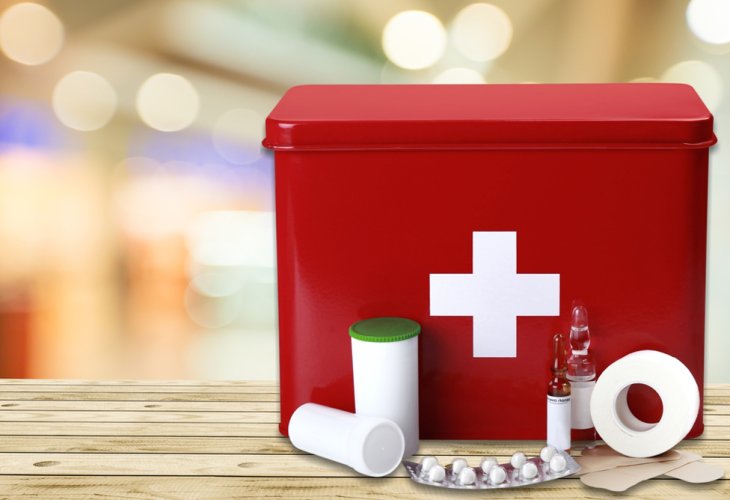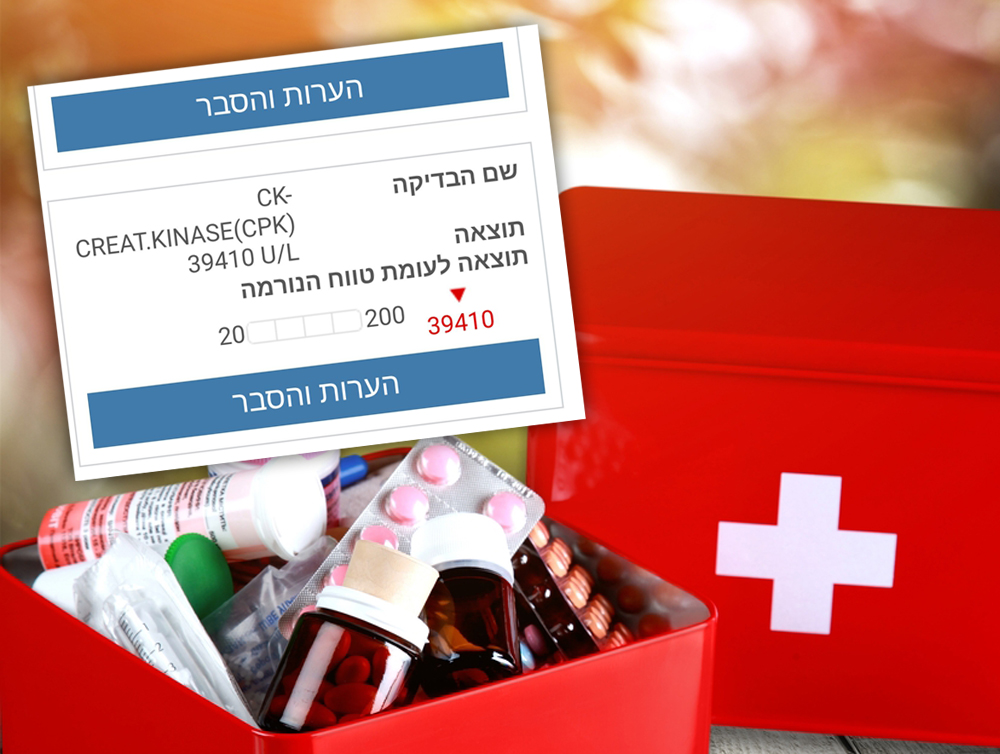Touching Story: Gave First Aid to an Injured Person and Discovered His Own Life Was Saved
A resident of Kiryat Shmona, known as R', provided first aid to an injured person and later underwent blood tests to rule out infection. The tests revealed a dangerous illness, but thanks to the early detection, his life was saved.
 (Illustration photo: shutterstock)
(Illustration photo: shutterstock)The interview with R', a 22-year-old from Kiryat Shmona, left me deeply moved long after our conversation ended. Over the years in my writing career, I have encountered numerous extraordinary, touching, and thought-provoking stories. But R’s story, whose full details are kept confidential, is a tale of loving, miraculous, and enveloping providence that is hard not to be amazed by.
Until a month ago, R’s life was running smoothly. He was an ordinary, completely healthy guy, as he is keen to emphasize. "Maybe I've been to a doctor once or twice in my life," he says with a smile. "I was completely healthy with no medical problems." But one Saturday night, about a month ago, everything changed.
During his military service in the Border Guard, R' served as a medic. Perhaps it was due to his medical training or his military past, but R' did not hesitate for a moment when he heard gunshots from the street where his home is located. "At first, when I heard the sound, I thought it might be kids playing with firecrackers," he recalls. "But when the sound continued, I immediately realized they were gunshots. We had just finished *Havdalah*, it was Saturday night, and I immediately dashed outside to see what was happening."
What R' saw was a grim scene. A neighbor's dispute had escalated into violence, resulting in the serious injury of one of the involved parties. "I yelled at the shooter from a distance to lower his weapon and let me treat the injured person," R' recounts. "After a brief hesitation, he complied, and I ran to the victim. When I reached him, he was completely covered in blood. I immediately understood that he was gravely injured. Someone around handed me a belt so I could apply a tourniquet to the wounded man. During those moments, the entire neighborhood started to emerge, an ambulance was called, and in the meantime, aware that every moment was a matter of life and death, I treated him. Without gloves."
Apparently, the issue of gloves is critical. Anyone who has worked or is working in first aid knows very well that you should not treat an injured person without gloves, for the rescuer's safety. Exposure to blood could be disastrous for the caregiver if the injured person has a serious infectious disease. R', a former military medic, was well aware of the necessary safety precautions, but in that urgent situation, he acted swiftly. "I was in a frenzy," he recounts. "I knew that if I didn't give him first aid now, he would die in my hands."
For long minutes, R' treated the injured person alone until the ambulance arrived. He didn’t think about the fact that he was exposed to the victim’s blood all that time. The only thought that crossed his mind was that he had to do everything possible to save him. "I feared that if I didn’t treat him, he would die because he lost a lot of blood."
Today, R' tells us, the injured person he treated is doing fine. Much thanks to the quick first aid he received after being injured.
The Doctor Called and Said: "You Have to Run to the Hospital!"
A few days after the incident on Saturday night, R' recalled the necessary safety rules in such cases and went to his family doctor to perform blood tests to make sure he hadn’t contracted any infectious disease. The doctor ordered a full series of possible tests to ensure everything was fine. According to R’s account, these were comprehensive tests, beyond a regular blood count.
On Thursday, R’ went to the clinic and did the tests, marking off another routine procedure. On Friday morning, his phone rang. It was his doctor, anxious and agitated: "You have to run to the hospital now," he informed him. "Your blood tests show highly abnormal results. Get there as quickly as possible!"
 Test results (Background image: shutterstock)
Test results (Background image: shutterstock)R', until that day a completely healthy guy, initially thought the doctor was wrong or confused, but a brief phone explanation convinced him it was indeed reality. "At first, I thought I had actually caught something when I treated the injured person on Saturday night," he recalls. "But then the doctor explained to me that this was not the case. It turns out that my blood tests showed very high levels of Creatine Phosphokinase (CPK), an enzyme in the blood with normal values ranging between 20 to 200. The tests I conducted showed that my levels were 40,000! These are extremely high values!"
The high values discovered could lead to acute kidney failure, a life-threatening condition that must be treated urgently, or it can lead to dialysis dependence and, in severe cases, even the need for a kidney transplant. Because there are no clear symptoms of this condition at its onset, except for mild weakness and slight muscle pain, most patients do not get treatment until it is too late. In R’s case, the blood tests he did revealed the abnormal values in time.
"I'm usually a healthy person," he says excitedly. "I had no logical reason to go and do blood tests, just like that in the middle of my life, if not for the first aid I provided. After all, I wasn't sick, I felt great. But from Heaven, they arranged that I would take the tests. It's truly a miracle from Hashem, a special providence that watched over me. At first, when the doctor called, I was scared. But on the way to the hospital, on that Friday, I was already completely calm. I trusted Hashem because I understood that this was really something miraculous, above nature. Otherwise, there was no way this would have been discovered in time."
At the hospital, R' stayed during the Shabbat and afterwards, receiving special treatment until the high enzyme levels in his blood balanced out. The doctors themselves, he recounts, explained to him that he was very lucky, a miracle, in other words. They usually explained to him that this condition is discovered much later when there is not much to do. Thanks to the quick treatment R' received, his life was saved.
"One of the doctors at the hospital told me he had met a guy in the past who arrived in a similar condition," he recounts. "He came to the hospital with values similar to mine, but in his case, there was nothing left to do, and unfortunately, it seems like he will need dialysis in the future."
How are you today?
"I am completely healthy, *Baruch Hashem*. I need to do blood tests once every few months to ensure everything is fine, but other than that, perfectly healthy. No need for medication or anything. It's a clear miracle. If I hadn’t treated that injured person, I would likely be a kidney patient today, receiving dialysis and hospitalized."
After being discharged from the hospital, R' approached his rabbi, asking whether he should say the *Birkat HaGomel*. The rabbi ruled that there was no need to say *Birkat HaGomel*, but he should hold a large thanksgiving feast, in gratitude for the miracle that happened to him, and also publicize the miracle.
"Not everyone is fortunate to see such great and apparent divine providence," he says with excitement. "But I was lucky! It may sound like a fictional story taken from a book or movie, but this is indeed what happened. I was privileged to see with my own eyes how Hashem protects me at every moment, thanks to that important mitzvah."

